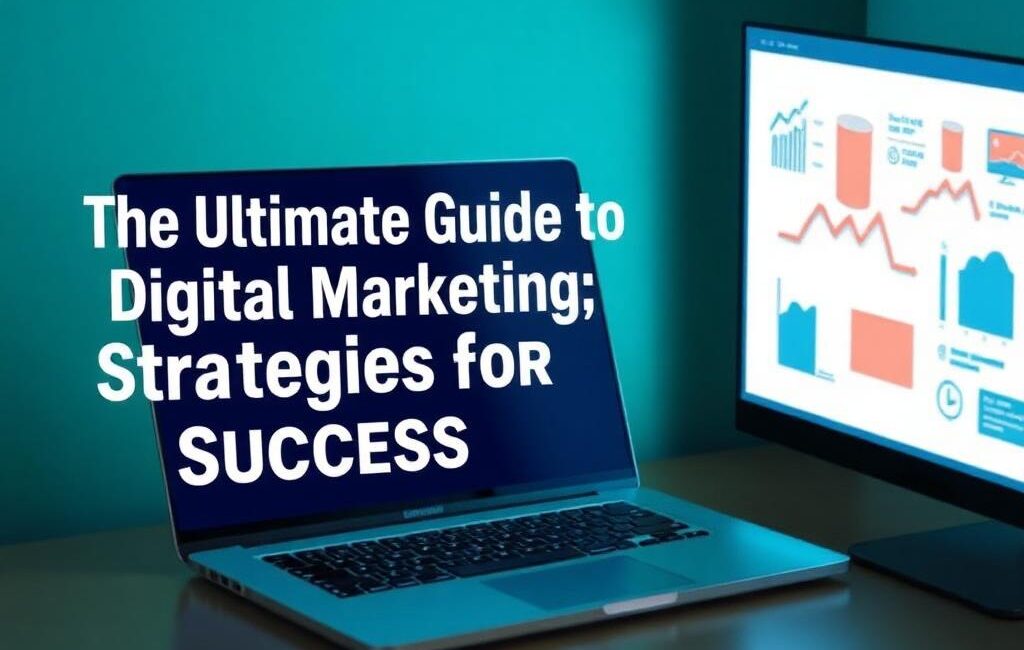In today’s digital era, businesses cannot afford to ignore the power of digital marketing. Whether you are a startup or an established enterprise, leveraging digital marketing strategies can significantly boost your brand visibility, engagement, and revenue. Here’s a comprehensive guide to understanding and implementing effective digital marketing practices.
What is Digital Marketing?
Digital marketing involves promoting products or services using digital platforms such as search engines, social media, email, and websites. It enables businesses to connect with their target audience in a measurable and cost-effective way.
Key Components of Digital Marketing:
- Search Engine Optimization (SEO)
- Pay-Per-Click Advertising (PPC)
- Social Media Marketing (SMM)
- Content Marketing
- Email Marketing
- Affiliate Marketing
- Mobile Marketing
Benefits of Digital Marketing
- Global Reach: Reach customers beyond geographical boundaries.
- Cost-Effectiveness: Achieve high ROI with low investment.
- Measurable Results: Use analytics to track performance.
- Targeted Advertising: Connect with specific demographics.
- Increased Engagement: Interact directly with your audience.
Effective Digital Marketing Strategies
1. Search Engine Optimization (SEO)
SEO improves your website’s visibility on search engine results pages (SERPs). Focus on:
- Using relevant keywords.
- Creating high-quality content.
- Optimizing meta tags and descriptions.
2. Pay-Per-Click Advertising (PPC)
PPC involves placing paid ads on platforms like Google Ads or Bing Ads. Tips for successful PPC campaigns:
- Use targeted keywords.
- Set clear budget limits.
- Analyze and optimize ad performance.
3. Social Media Marketing (SMM)
Leverage platforms like Facebook, Instagram, LinkedIn, and Twitter to promote your brand:
- Share engaging posts.
- Use targeted ads.
- Interact with followers through comments and messages.
4. Content Marketing
Content is the backbone of digital marketing. Focus on creating valuable, relevant, and consistent content such as:
- Blogs
- Videos
- Infographics
- Ebooks
5. Email Marketing
Build strong relationships with your audience by sending personalized emails:
- Use attractive subject lines.
- Segment your audience.
- Include clear calls to action (CTAs).
6. Affiliate Marketing
Collaborate with affiliates who promote your products or services in exchange for a commission:
- Choose affiliates with a relevant audience.
- Provide clear guidelines and promotional material.
7. Mobile Marketing
Optimize your marketing strategies for mobile users:
- Use responsive design for websites.
- Create mobile-friendly emails and ads.
- Leverage SMS marketing.
Digital Marketing Tools to Boost Your Strategy
- Google Analytics: Track website performance and user behavior.
- SEMrush: Perform keyword research and competitor analysis.
- Hootsuite: Manage social media platforms efficiently.
- Mailchimp: Simplify email marketing campaigns.
- Canva: Design stunning visuals for ads and posts.
Measuring Success in Digital Marketing
Track these key performance indicators (KPIs) to measure the effectiveness of your campaigns:
- Website Traffic: Analyze the number of visitors.
- Conversion Rate: Measure the percentage of visitors who take desired actions.
- Engagement Metrics: Evaluate likes, shares, comments, and time spent on content.
- ROI: Determine the return on investment for your campaigns.
Future Trends in Digital Marketing
- Artificial Intelligence (AI): AI-powered tools for personalized marketing.
- Voice Search Optimization: Optimize for voice queries.
- Interactive Content: Use quizzes, polls, and AR experiences.
- Sustainability Messaging: Promote eco-friendly initiatives.
Conclusion
Digital marketing is a dynamic and ever-evolving field that offers immense potential for businesses to grow and thrive. By adopting the right strategies, leveraging powerful tools, and staying updated with trends, you can create impactful campaigns that resonate with your audience. Start your digital marketing journey today to unlock unparalleled opportunities!





